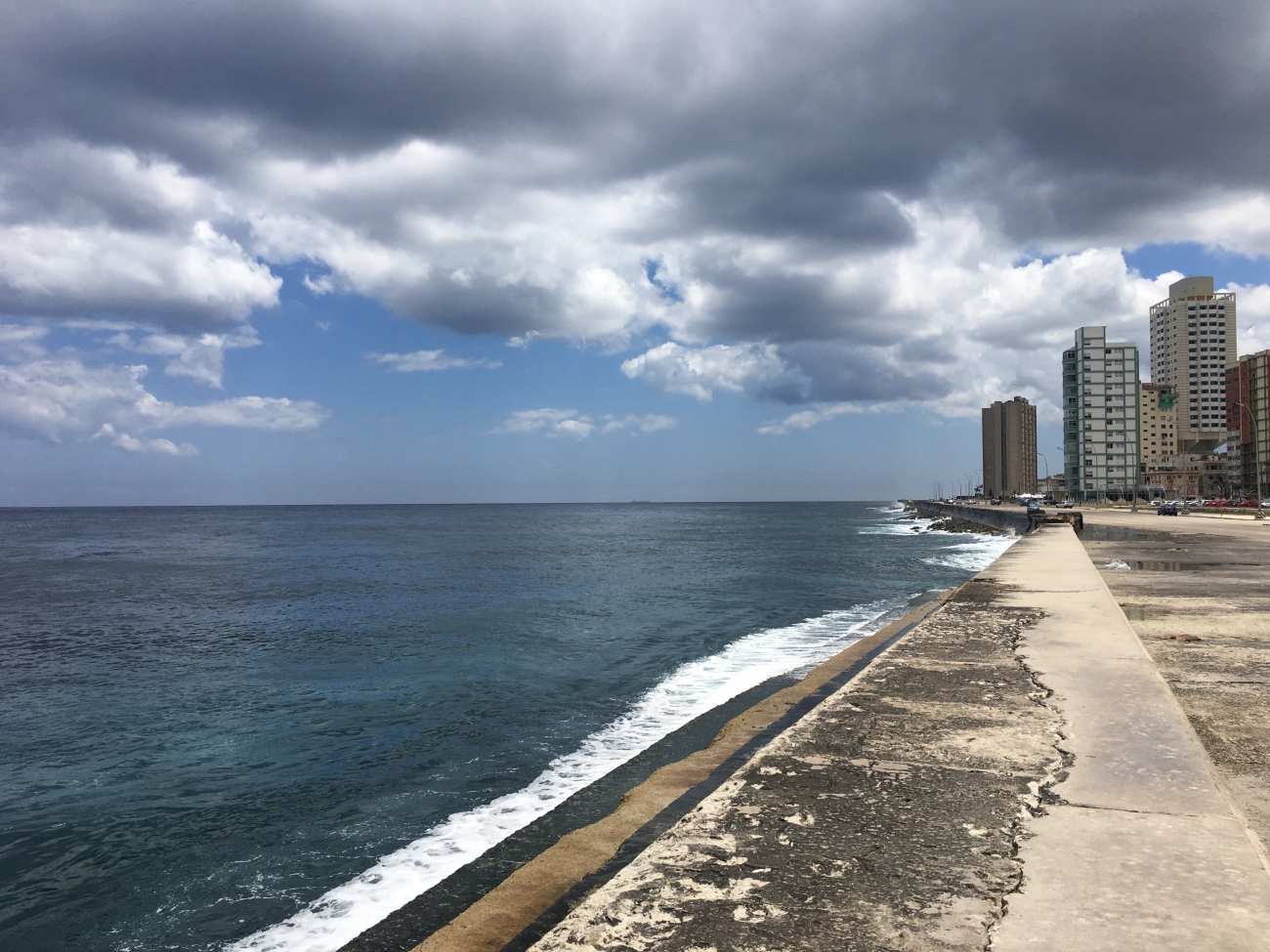Wintersession in Cuba
LAST 221 – Memories of Cuba:
Intersections between History and Culture in the Island

One of the most unique aspects of Cuba is its incredible diversity as a result of a long history of encounters between Europe, Africa and Asia. The hybrid nature of Cuban identity can be manifested through a number of forms, such as art, music, literature and religion. The country also has experienced some of the most dramatic moments of world history, including colonialism, slavery, the Cuban Revolution, anti-imperialism, and massive immigration to the United States. As Cuba begins a new phase in history, a comprehensive understanding of its cultural heritage is more pressing than ever. Rather than focus on political issues, this course will use on-site visits to explore different experiences of cultural intersections or syncretism (known as “transculturation”) on the island. A strong command of Spanish is required as the bulk of the course will be taught in the target language in order to better understand Cuban history and culture. Some of the student activities include preliminary readings, lectures, videos, interviews, and a travel log.
Program Dates: January 4-25, 2018
Credit: 0.5 units
Pre-requisite: Knowledge of Spanish at the level of one course beyond SPAN 241/242 (or 5th semester)
Distribution: HS
Application Deadline: September 15, 2017 (late submissions will not be accepted)
-
Please submit completed forms to Karen Cronin (kcronin2@wellesley.edu) by September 15, 2017. Candidates may be required to attend an interview and/or submit a writing sample. Please contact the program director, Professor Koichi Hagimoto (khagimot@wellesley.edu), with any questions.

Main Program Site: Centro de Estudios Martianos (Calzada 807, esquina a 4, El Vedado, Plaza de la Revolución, La Habana)
Housing: homestay (casas particulares) with another program participant
Estimate Program Cost: $3533 (includes all travel, room and board, classes and cultural excursions; excludes personal expenses, shopping, additional excursions, etc.,)
-
Wellesley students may participate in no more than one college-sponsored wintersession course abroad. Financial aid is available to eligible students enrolling in Wellesley-sponsored international wintersession courses and is awarded in proportion to aid received for study at Wellesley during the academic year. All students receive a grant of $1000 regardless of need. The next $1000 is awarded in the form of a subsidized loan. If this does not cover demonstrated need, any additional aid is awarded in the form of a grant.
Message from Prof. Koichi Hagimoto (Spanish Department)
Wintersession is a rigorous academic program and should not be considered tourism.
Therefore, I expect the participants to attend all classes, complete all assignments, participate actively in discussion and other activities, and interact with the Cuban people in a respectful and courteous manner. I am interested in taking a group of students from diverse disciplines. The selection will be based on a combination of several factors, including, but not limited to, the level of Spanish, previous coursework related to Cuba or Latin America, past international experience, faculty references, and especially a commitment to hard work. Interviews may be conducted in late-September to select participants.
Before traveling to Cuba, the group will spend a week on campus (January 4-10) in order to conduct a preliminary session, which involves research, reading, discussion and a series of lectures, both in Spanish and English. The two-week course in Havana (January 10-24) will be based in Centro de Estudios Martianos.
In consultation with the faculty director, students will identify a research project they want to develop throughout the duration of the program. Besides a daily travel journal, students must write a final paper. Additionally, they are required to make an oral presentation about their research at the end of the program.
History of slavery and its legacy in the present
Colonial architecture in Cuba
José Martí: Cuban patriot and poet
Cuban literature and the world
New technologies in contemporary Cuban literature
Women writers and artists in Cuba
Cuban cinema and the Third World
Nueva Trova: Cuban music and identity
Folkloric dance in Cuban history
Chinese diaspora in Cuba
Jewish presence in Cuba
Cuban revolution and art
Gender and sexuality in Cuban art
Santería: race and religion in Cuba
Cultural encounters between Cuba and the United States
The excursions in Havana may include Plaza de la Revolución, Museo de la Revolución, Museo de Bellas Artes, Barrio Chino, Museo de la Alfabetización, Museo de la Música, Federación de Mujeres Cubanas and Centro Nacional de Educación Sexual, etc.
Interactive map of the course.
Recommended programs for extended study:
